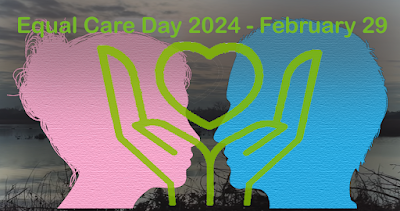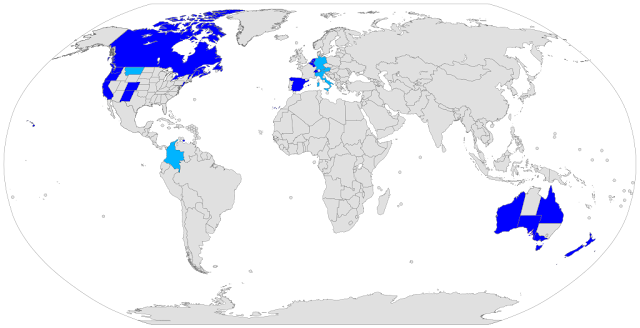Equal Care Day 2024 - February 29
Care means the fair and equal distribution of care work; fair not only in terms of distribution between the sexes, but also between rich and poor, old and young, newcomers and long-established residents.
Why should I care about equal care?
Well, this is a tricky, potentially contentious issue that comes up at some point in every relationship. As someone who cared for his wife daily, often 24/7 for more than ten years, this topic is of personal significance to me - I continue to advocate for the cause personally and fortunately also in my workplace, for caregiving and caregivers, three years subsequent to my wife's passing.
It's challenging for all of us to navigate this, whether it's looking after children, the ill, the elderly etc.; no one amongst us has found the ideal solution or achieved the perfect balance - and that's precisely why we need to talk about it and discover better modes of sharing responsibilities of care!
That's also why the Equal Care Day is crucial to me.
On this year's Equal Care Day, I reflect on why the care gap underlies all other widely-discussed injustices - the wage gap, the pension gap etc. The disparity in lifetime earnings is the largest gap.
In households with children, women spend, on average, five hours and eighteen minutes a day on care work, while men spend only two and a half hours.
80 percent of care work is done by women, 20 percent by man, whether at home, as voluntary work or as a profession.
Raising and educating children, caring for the sick and elderly, people with disabilities, the ‘mental load’*: Who cares?
Who nourishes and cooks, who feeds, cleans up, does the laundry?
Who takes care and – at what price?!
All too often women personal decisions are blamed for this systematic imbalance. It is argued that the distribution of labor would lie in the nature of things. “Motherly love” and empathy are just something girls are born into, right? What? Really?
Why does a cloudy reminiscence of the Stone Age justify the lack of appreciation for care work?
And why does this narrative suffice to financially disadvantage caring people throughout their lives?
A few thoughts
I have posed myself the question, whether there's a way to transform the rhetoric surrounding care work from the current negative stereotypes (an unpaid career disappointment) to a more positive one - I am deeply convinced that sharing care work more equitably not only enriches relationships with partners and children, it calls for both parents to benefit from the leadership skills inherently taught by active parenthood. How can we all accomplish this? Well, my proposition includes - allowing men a chance (so stop doing everything yourselves); and urge male employees to boldly request parental leave;
encourage employers to actively propel their male team members into taking parental leave, thus normalizing its practice. And while my points so far have been about immediate family, partnerships - I am also convinced that it's consequential how and where we live and as a society, consider ourselves capable of living.






Comments
Post a Comment